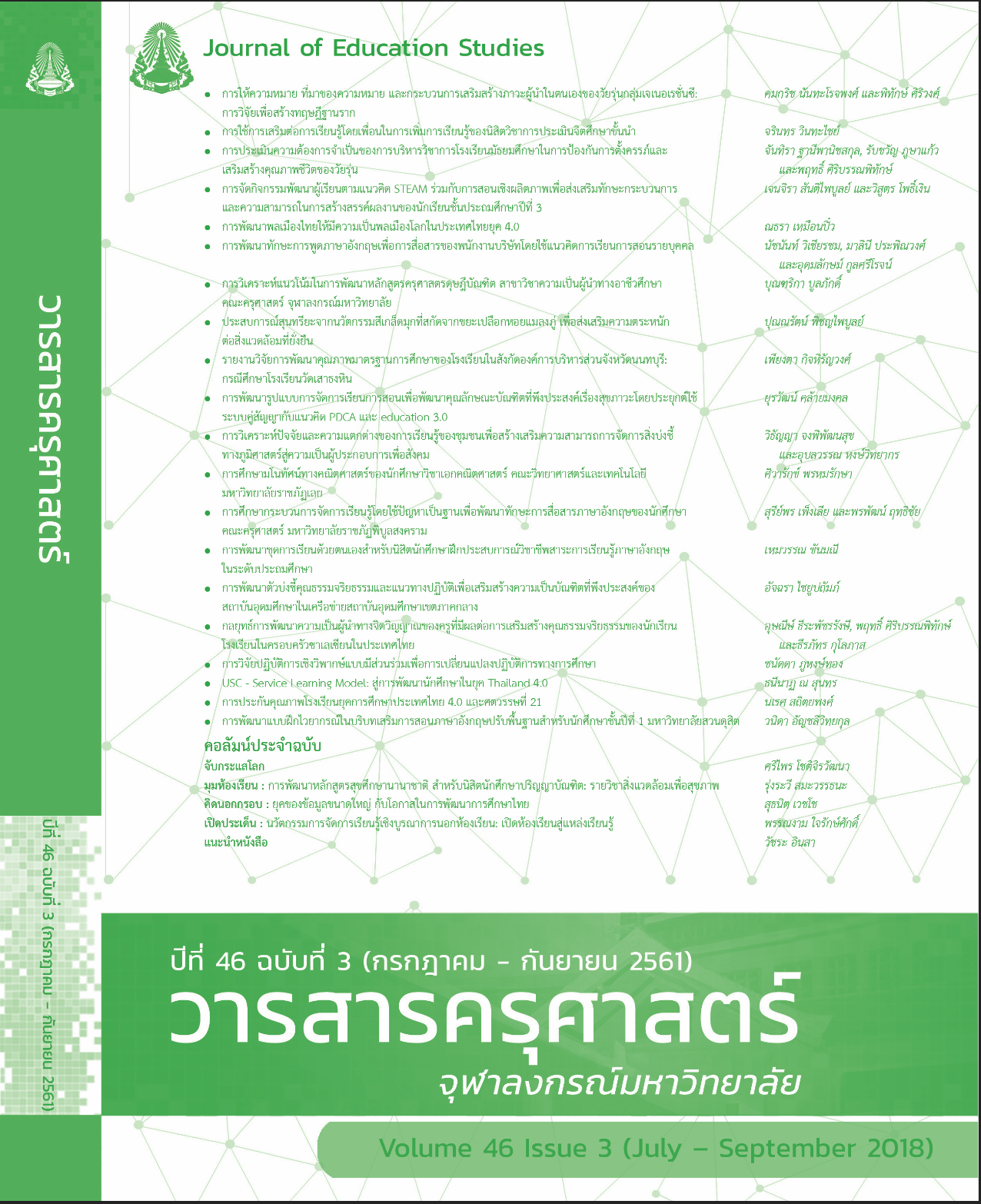มุมห้องเรียน: การพัฒนาหลักสูตรสุขศึกษานานาชาติ สำหรับนิสิตนักศึกษาปริญญาบัณฑิต: รายวิชาสิ่งแวดล้อมเพื่อสุขภาพ
Keywords:
INTERNATIONAL COURSE CURRICULUM, ENVIRONMENT FOR HEALTH, INTERNATIONALIZATION, ENGLISH FOR SPECIFIC CONTENTAbstract
Abstract
The objectives of this study were to 1) develop an International Health Education Course Curriculum for Undergraduate students: Environment for Health and 2) examine the effectiveness of the curriculum. This course was based on Reconstructionism and progressivism philosophy which focused on solving social problems and enchanting students in health behaviors and communication. The course was also expected to serve ASEAN needs of health communication and cooperation as well as the world environmental concern in health affected. The research was a mix method, qualitative and quantitative using descriptive and one group experimental. The study composed of three phases; 1) course curriculum development with four group’s participants investigating need analysis, 2) research instrumental development, and 3) examine the effectiveness of the course curriculum implementation using purposive sampling. The study finding two research purposes by gathering data two times of implementation, in academic year 2014 (2557 B.E.) and 2016 (2559 B.E.).
1) The finding of developing the course curriculum was consisted of main four components, learning objective, 11 units of the learning course contents, learning process, and learning assessment and evaluation.
2) The finding of the course curriculum effectiveness, the leaners’ achievements in health behaviors (K, A, P) and English for specific content(ESC) after the experiment were significantly on a statistical basic the .05 higher score than before the experiment.



